 1991 Holden Calais (VP, facelift 1991) Dimensions, Size & Specs
1991 Holden Calais (VP, facelift 1991) Dimensions, Size & SpecsMeasurements of the 1991 Holden Calais, engineered for optimal performance and comfort
| Dimensions | |
|---|---|
| Length: | 4861 mm191.4 in15.9 ft |
| Width: | 1794 mm70.6 in5.9 ft |
| Height: | 1443 mm56.8 in4.7 ft |
| Trunk Capacity: | 443 liter15.6 cu ft |
| Weight Specifications | |
| Curb Weight: | 1454-1540 kg3206-3395 lbs |
| Tire Specifications | |
| Tire Size: |
|
The Holden Calais VP facelift, introduced in 1991 during the 1990–1998 production run, is a classic midsize Australian luxury sedan renowned for its spaciousness and performance. Featuring a length of 4861 mm (191.5 inches), a width of 1794 mm (70.6 inches), and a height of 1443 mm (56.8 inches), the Holden Calais VP offers a balanced and well-proportioned exterior ideal for both urban driving and comfortable highway cruising. Its curb weight ranges between 1454 and 1540 kg (3207 to 3397 lbs), reflecting its robust build quality and stable ride dynamics. The sedan is equipped with 205/65 R15 H tires, ensuring a comfortable and secure grip on the road. The luggage compartment provides a generous capacity of 443 liters (15.6 cubic feet), making it practical for everyday use and long trips alike. Together, these specifications illustrate why the Holden Calais VP facelift remains a favored choice for those seeking a reliable and elegant sedan from the early 1990s era.
Discover the standout features that make the 1991 Holden Calais a leader in its class
Have a question? Please check our knowledgebase first.
The Holden Calais VP facelift from 1991 measures 4861 mm (191.5 inches) in length, 1794 mm (70.6 inches) in width, and stands 1443 mm (56.8 inches) tall. These dimensions make it a fairly standard-sized mid-to-large sedan for its time, offering a good balance of interior space and road presence.
The curb weight of the Holden Calais VP facelift 1991 ranges between 1454 and 1540 kilograms (3206 to 3395 pounds). This weight reflects the car's build quality, size, and the inclusion of luxury features typical to the Calais variant, impacting fuel efficiency and driving dynamics.
The Holden Calais VP facelift has a luggage capacity of 443 liters (approximately 15.6 cubic feet). This provides ample space for everyday use and medium-sized trips, competitive when compared to other executive or family sedans of the early 1990s. It strikes a balance between passenger comfort and practical cargo volume.
Yes, the Holden Calais VP facelift 1991 fits comfortably into a standard residential garage. Its width of 1794 mm (70.6 inches) and length of 4861 mm (191.5 inches) are within common garage size specifications, which typically accommodate vehicles up to about 6 meters (236 inches) long and 2.5 meters (98 inches) wide. However, owners should consider additional space for opening doors and storing other items.
The 1991 Holden Calais VP facelift maintained largely the same exterior dimensions as the original pre-facelift VP produced from 1990. Both measure around 4861 mm in length and 1794 mm in width. The facelift mainly updated styling elements such as the headlights, grille, and bumpers rather than altering the car's size, so the space and overall footprint remained mostly consistent.
The Holden Calais VP facelift’s dimensions (4861 mm length, 1794 mm width, 1443 mm height) are comparable to other mid-to-full size luxury sedans of the era, such as the Ford Fairlane or Toyota Crown. It offers a similar balance of spaciousness and drivability, making it competitive in its segment for both passenger space and road presence.
The Holden Calais VP facelift comes equipped with 205/65 R15 H tires. This tire size offers a good compromise between comfort and handling, with a reasonably tall sidewall (65% of the 205 mm width) that helps absorb road imperfections for a smoother ride, while the 15-inch rim size supports stable and predictable handling.
With a height of 1443 mm (56.8 inches), the Holden Calais VP facelift provides comfortable headroom for front and rear passengers, typical for a sedan of its class. This moderate height also contributes to a balanced aerodynamic profile that reduces drag, helping with fuel efficiency and reducing wind noise during highway driving.
Yes, the Holden Calais VP facelift 1991 is well-suited for families, offering spacious seating for up to five occupants along with generous legroom and headroom. The large boot space of 443 liters further adds practical utility for family luggage or groceries. Combined with luxury and comfort features, it was regarded as an executive sedan meeting family needs in its production era.
Fuel efficiency of the Holden Calais VP facelift 1991 varies depending on the specific engine and transmission configurations but typically ranged around moderate consumption levels typical for larger sedans of the early 1990s. It was not designed as an economy car but rather focused on performance and comfort, so fuel consumption might be higher compared to smaller sedans, aligning it with similar luxury sedans of its time.
Discover similar sized cars.
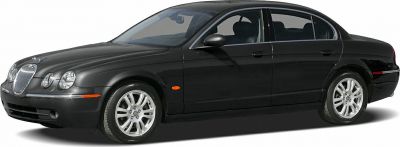
| Production: | 1998-2007 |
|---|---|
| Model Year: | 1999 |
| Length: | 4861 mm191.4 in |
| Width: | 1819 mm71.6 in |
| Height: | 1441 mm56.7 in |
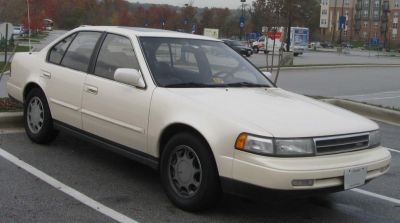
| Production: | 1988-1995 |
|---|---|
| Model Year: | 1989 |
| Length: | 4780 mm188.2 in |
| Width: | 1760 mm69.3 in |
| Height: | 1405 mm55.3 in |
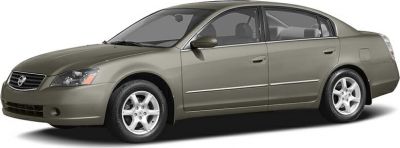
| Production: | 2002-2006 |
|---|---|
| Model Year: | 2002 |
| Length: | 4860 mm191.3 in |
| Width: | 1790 mm70.5 in |
| Height: | 1470 mm57.9 in |

| Production: | 1993-1995 |
|---|---|
| Model Year: | 1994 |
| Length: | 4800 mm189.0 in |
| Width: | 1745 mm68.7 in |
| Height: | 1410 mm55.5 in |
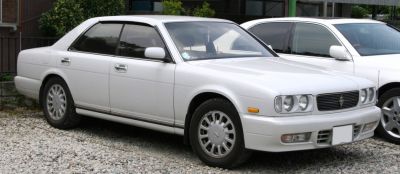
| Production: | 1991-1995 |
|---|---|
| Model Year: | 1992 |
| Length: | 4780 mm188.2 in |
| Width: | 1745 mm68.7 in |
| Height: | 1410 mm55.5 in |
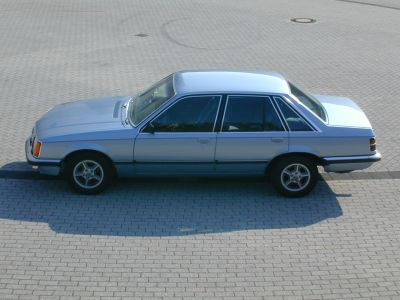
| Production: | 1978-1982 |
|---|---|
| Model Year: | 1978 |
| Length: | 4811 mm189.4 in |
| Width: | 1728 mm68.0 in |
| Height: | 1415 mm55.7 in |
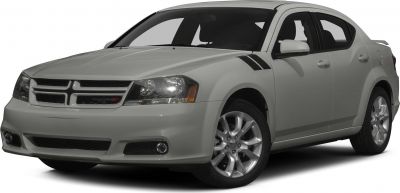
| Production: | 2010-2014 |
|---|---|
| Model Year: | 2011 |
| Length: | 4892 mm192.6 in |
| Width: | 2064 mm81.3 in |
| Height: | 1483 mm58.4 in |
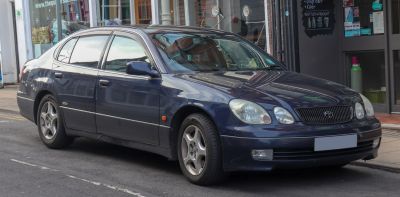
| Production: | 1997-2005 |
|---|---|
| Model Year: | 1998 |
| Length: | 4865 mm191.5 in |
| Width: | 1800 mm70.9 in |
| Height: | 1435 mm56.5 in |
